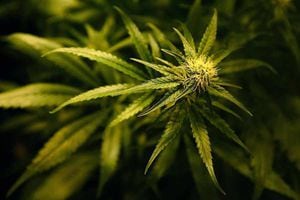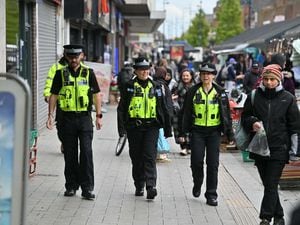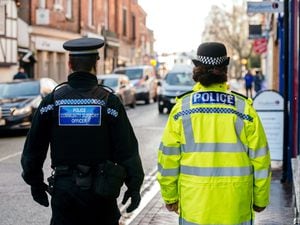Should cannabis be legalised? Don't hold your breath
The case of 12-year-old epileptic Billy Caldwell, whose medicinal cannabis oil was confiscated by the authorities, resulted in a major rethink by the Government in how the drug is regulated.

However, while the laws regarding medical cannabis have been relaxed slightly, it is unlikely Britain will follow Canada in making recreational use legal. A poll of MPs last year found that 71 per cent were opposed to legalising recreational use of the drug, while public opinion is also sharply divided.
When Home Secretary Sajid Javid announced in October that year that the ban on cannabis oil was to be lifted for therapeutic use, he was keen to stress: "This will help patients with an exceptional clinical need, but is in no way a first step to the legalisation of cannabis for recreational use.”
In this respect, Britain is far from alone. In October last year, Canada became only the second country in the world to formally legalise the cultivation, possession, distribution and consumption of cannabis. The only other country to have done this is Uruguay. Ten US states have also adopted a similar policy, while a further 13 have adopted a 'halfway-house' policy of decriminalisation, where it is still illegal but subject to civil rather than criminal law.
Lichfield MP Michael Fabricant has long campaigned for a more liberal approach towards the drug. He likens the present policy to that of the Prohibition on the sale of alcoholic drinks in the US in the 1920s and 30s.
He says: “While recognising the harm that can be caused by enriched and artificial drugs based on cannabis, I do support the legalisation of natural cannabis.
"There can be no doubt that just as Prohibition – on the sale of alcohol – failed in the United States and encouraged gangsterism, the banning of drugs has promoted a wicked and lucrative black market which pushes illegal drugs on the innocent.
"The argument that excessive amounts of even natural cannabis might do harm just doesn’t wash. The same can be said of alcohol or even sugary drinks; both of which can eventually lead to death. We need a grown up debate on this whole issue and a national education programme on the use and abuse of drugs.”
However, if not quite a lone voice, Mr Fabricant is very clearly in a minority. A poll carried out by Populus last year found that only 12 per cent of MPs supported a change in the law on recreational use of cannabis, and the figure fell to six per cent for Conservative MPs. But the idea hardly enjoys widespread support in the Labour Party either, with just 17 per cent of MPs supporting legalisation.
On the other hand, the legal, controlled supply of cannabis has been Liberal Democrat policy since 2016.
Former Conservative leader and foreign secretary William Hague has also called for a change in the law, saying Britain should follow Canada's lead.
Lord Hague, who lives near Welshpool, says the present hard-line stance on the drug is "inappropriate, ineffective and utterly out of date".
He adds: "It's time to acknowledge facts, and to embrace a decisive change that would be economically and socially beneficial, as well as rather liberating for Conservatives in showing sensible new opinions are welcome."
Public opinion is even more divided. Last year, more than 25,000 people have signed a petition calling on the government to legalise cannabis for both recreational and medical uses.
But while a poll of 1,500 adults carried out by BMG last year suggests that 51 per cent now support the legalisation of the drug, a Populus poll of more than 4,000 in 2016 showed the public opposed it by a margin of 58 per cent to 34.
Supporters of a more liberal approach argue that a legal, regulated market would allow police to crack down on potent strains in circulation and keep money away from drug lords and criminal gangs.
In June 2018, a report by the Institute of Economic Affairs (IEA) said Britain's black market in cannabis was worth £2.6bn annually, with more than 220 tons sold to more than 3 million people last year.
It's report said: “The dominance of hazardous, high-strength ‘skunk’ cannabis in the black market should be a key reason for legalisation. Licensed sales would allow safer, regulated cannabis to displace the more dangerous strains and generate tax revenue that could be spent on mental health services.”
However, politicians will be mindful of a previous ill-fated attempt by Tony Blair's government to liberalise the law on the drug. In 2004, then home secretary David Blunkett announced that the drug would be downgraded from class 'B' to class 'C', removing the threat of arrest for possession of small quantities. But a public outcry led to his successor Charles Clarke commissioning a review which established a clear link between the drug and mental health problems. The policy was reversed in 2009.
West Midlands police and crime commissioner David Jamieson says there is no need to change the law with regard to cannabis at this stage, although he says the present 'war on drugs' is clearly not working.
"The main focus of my work on tackling drugs has been on hard drugs such as heroine and crack cocaine," he says.
"There is a lot that we and the Government can do within the present legal framework.
"I have been calling for a sensible debate on drugs. It is clear that the war on drugs has failed and we need creative solutions to reduce the crime, harm and misery that flows from them."
West Mercia commissioner said he supported the recent decision to review the laws on medicinal uses, but declined to elaborate on whether this should be extended to recreational use.
"The use of drugs for medicinal purposes has existed for a very long time and it is appropriate that our laws are reviewed from time to time to ensure they are fit for purpose and reflect the world we live in," he says.





